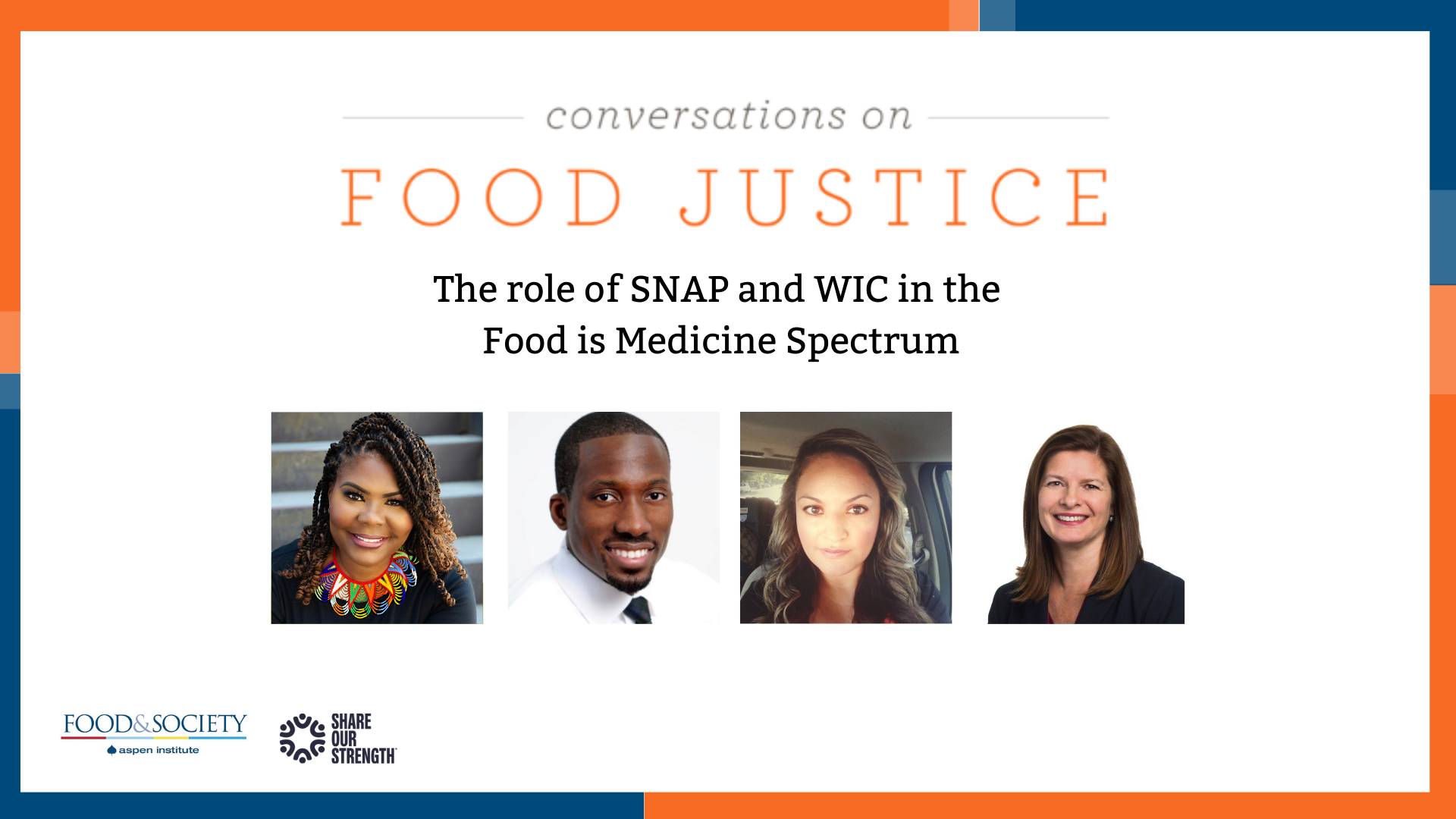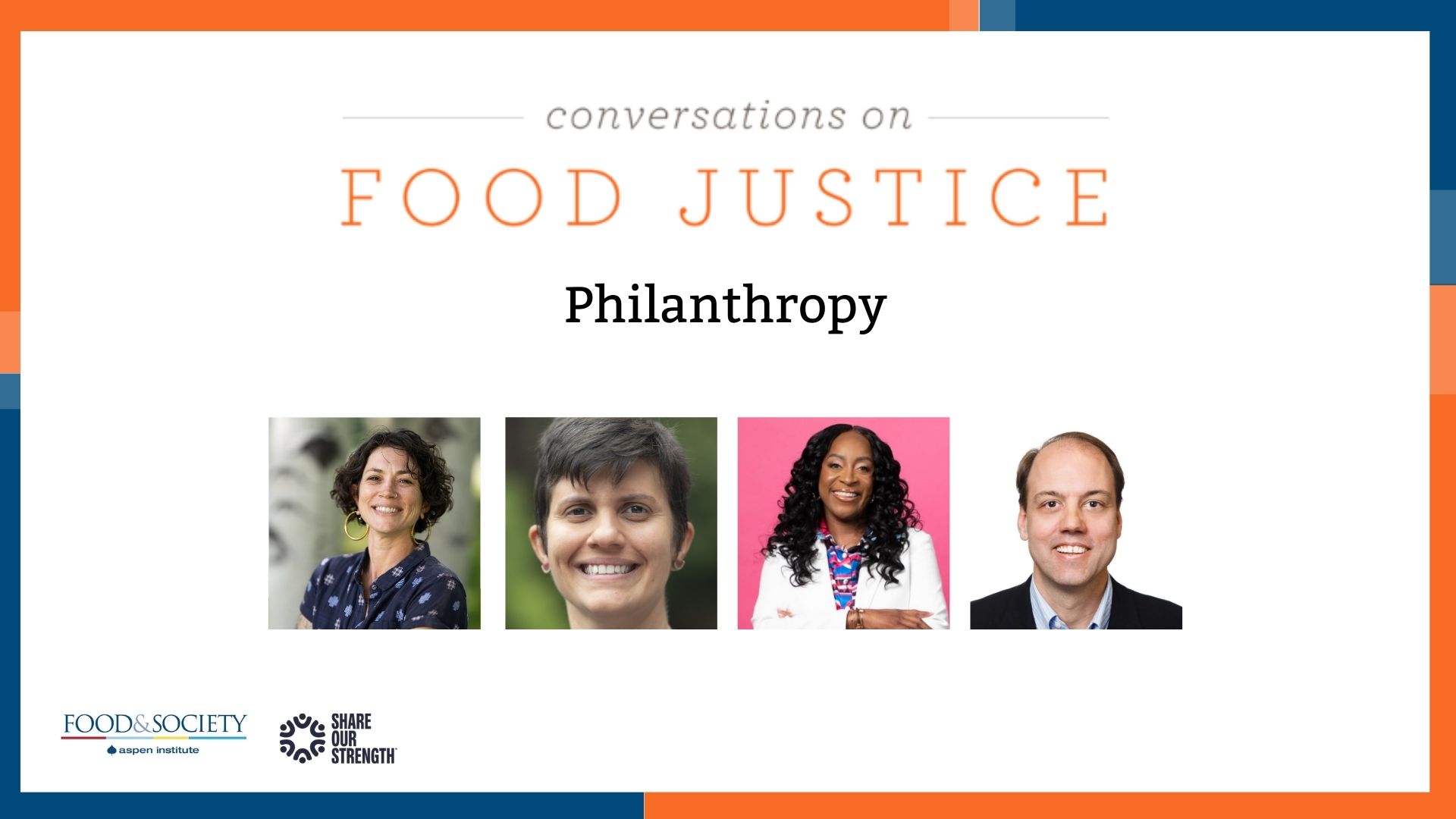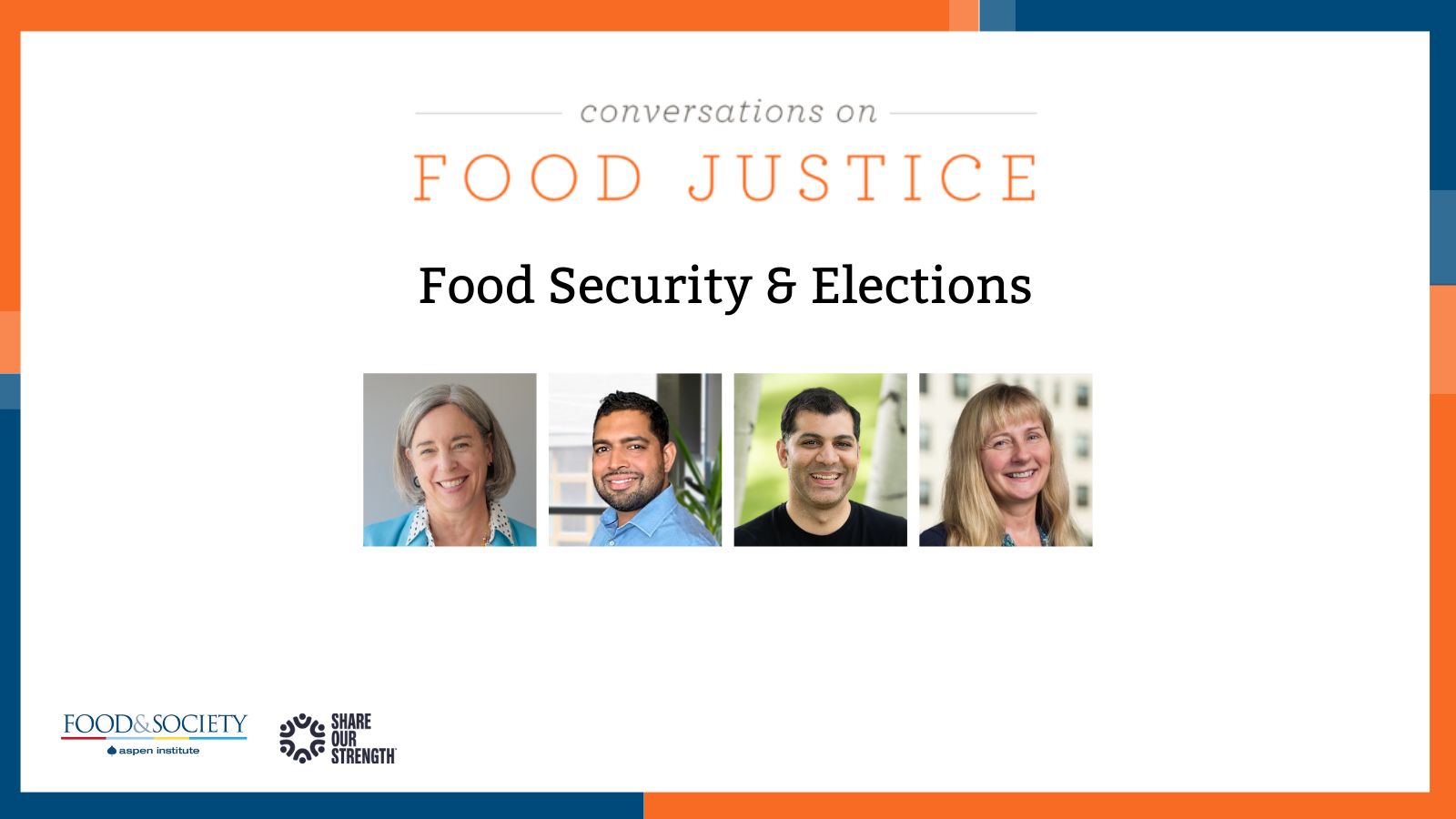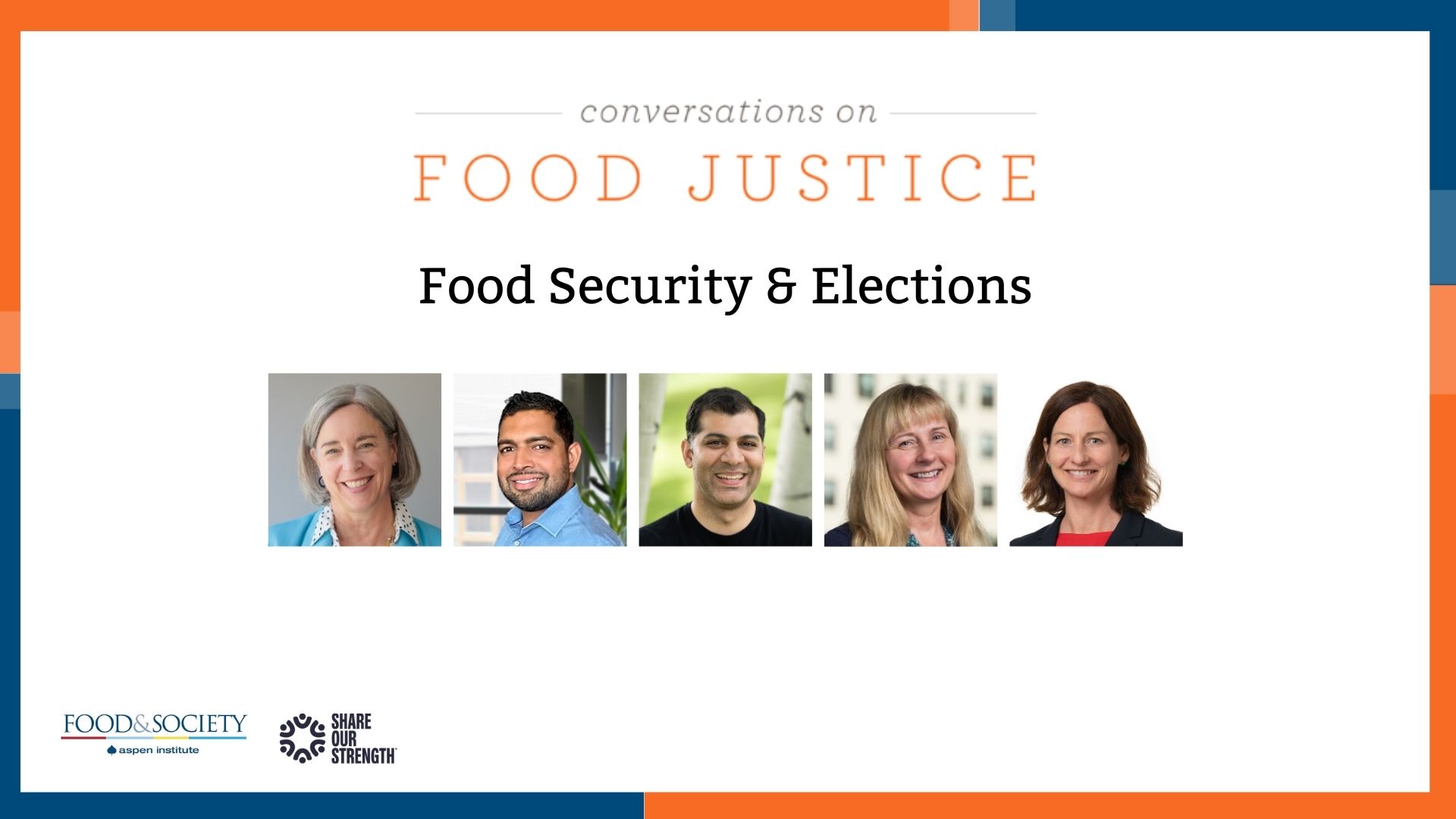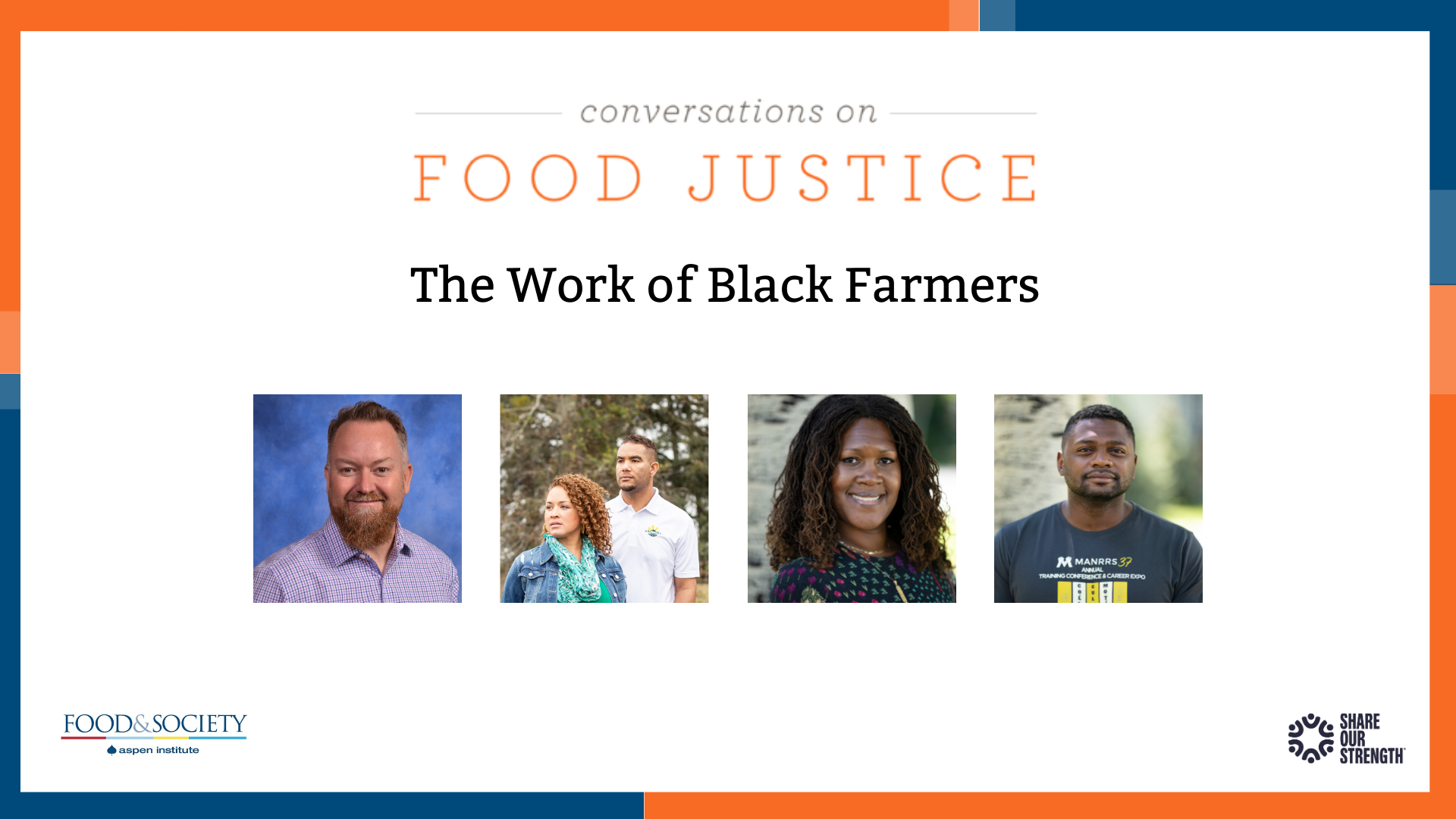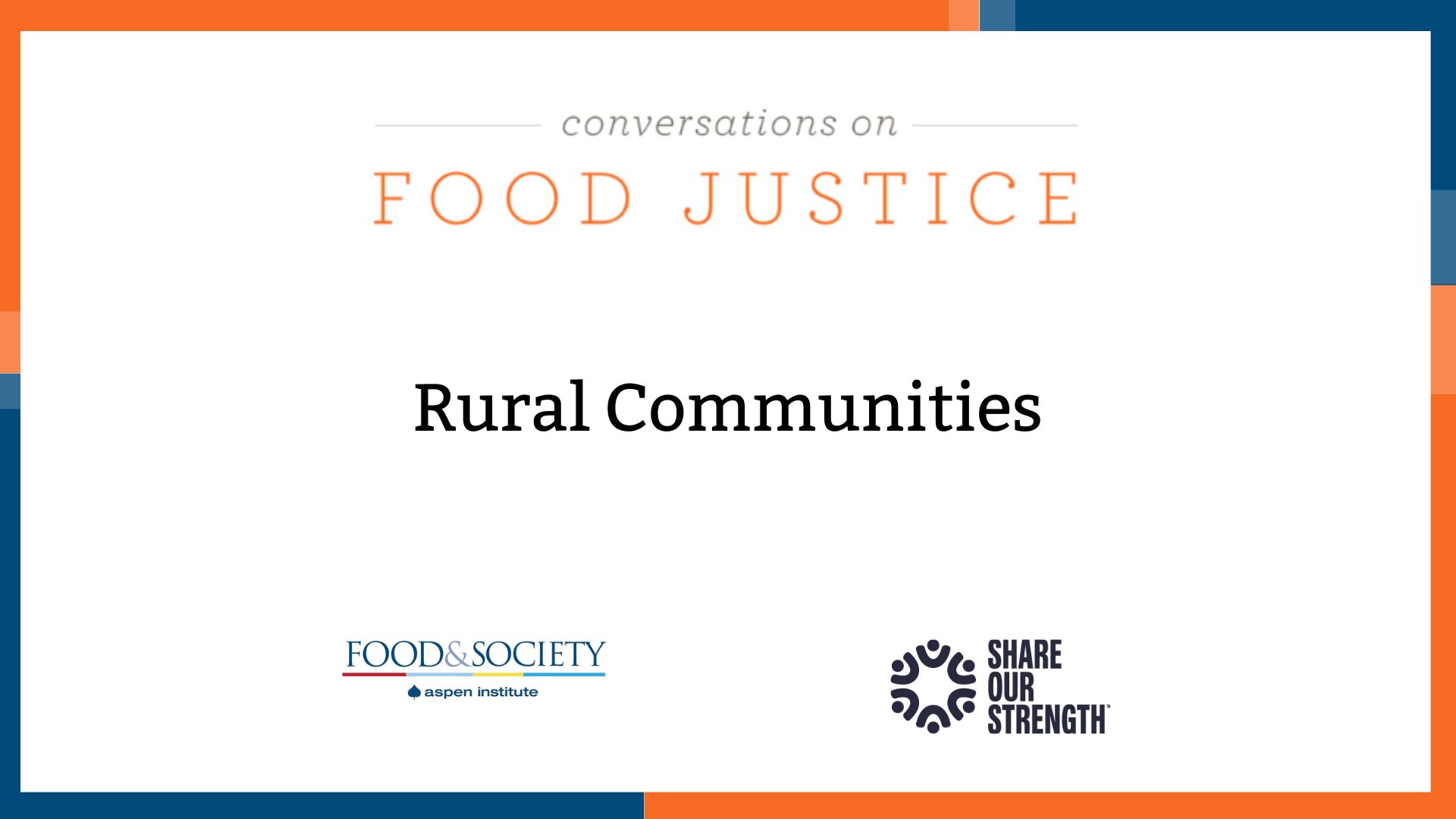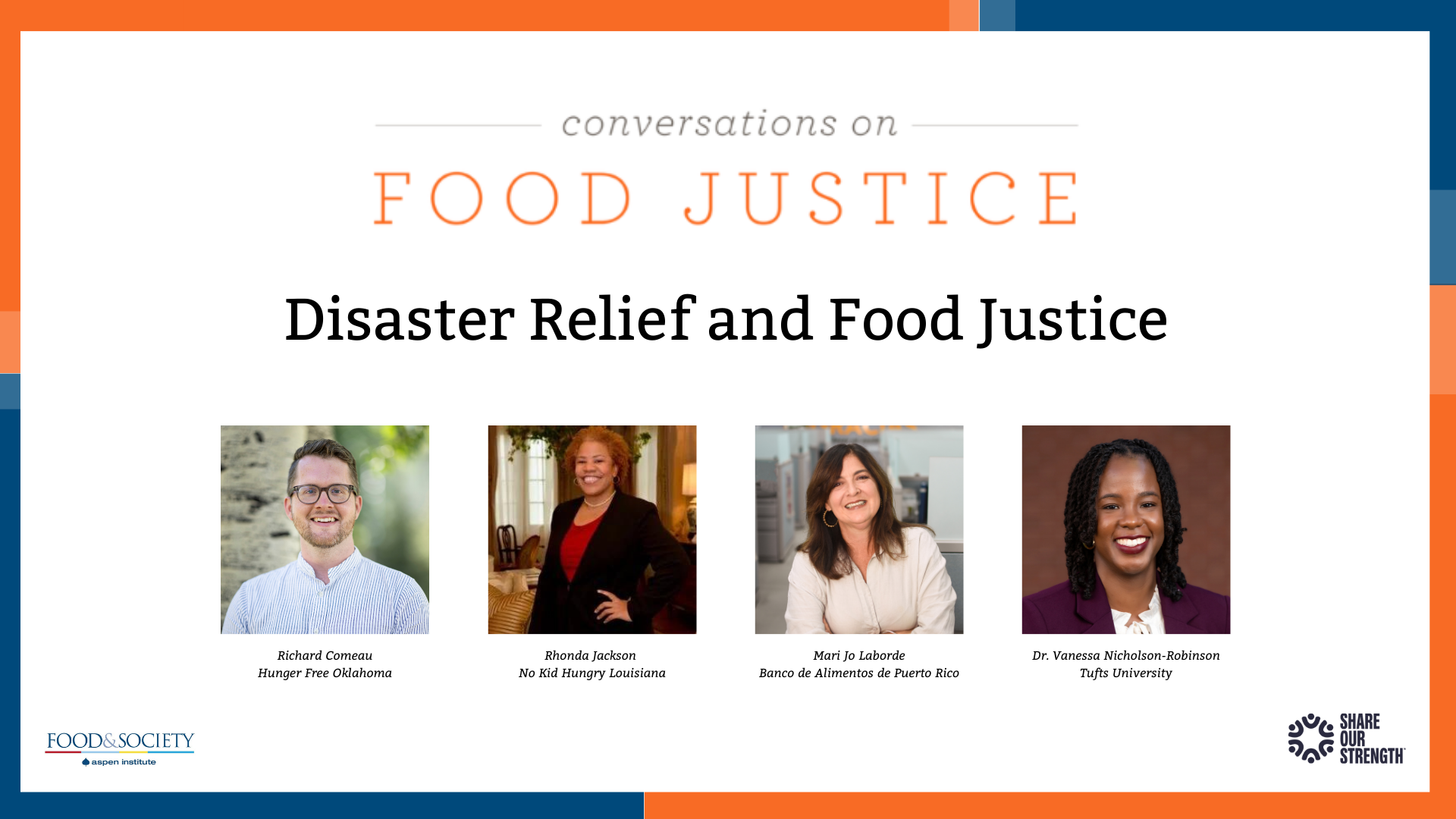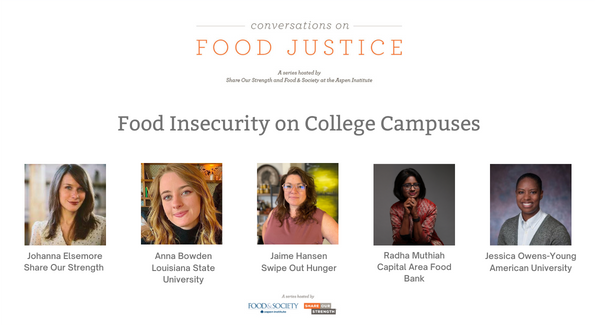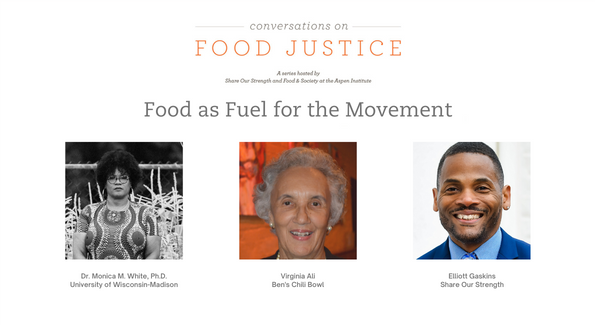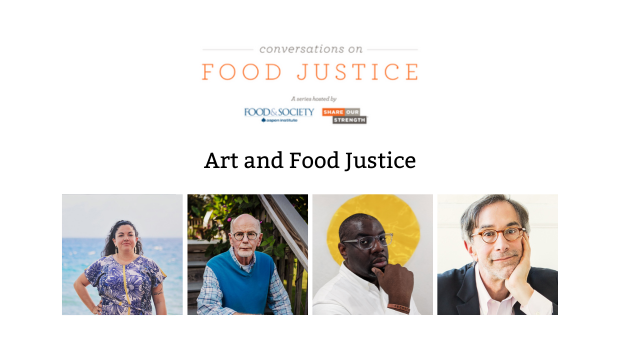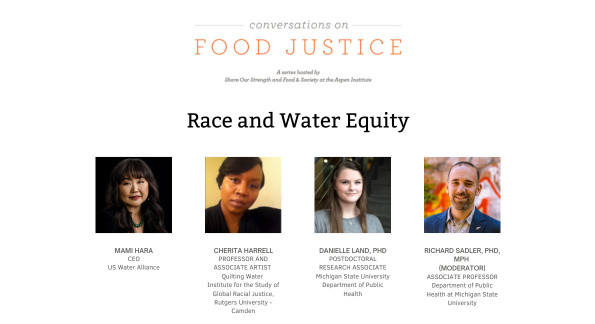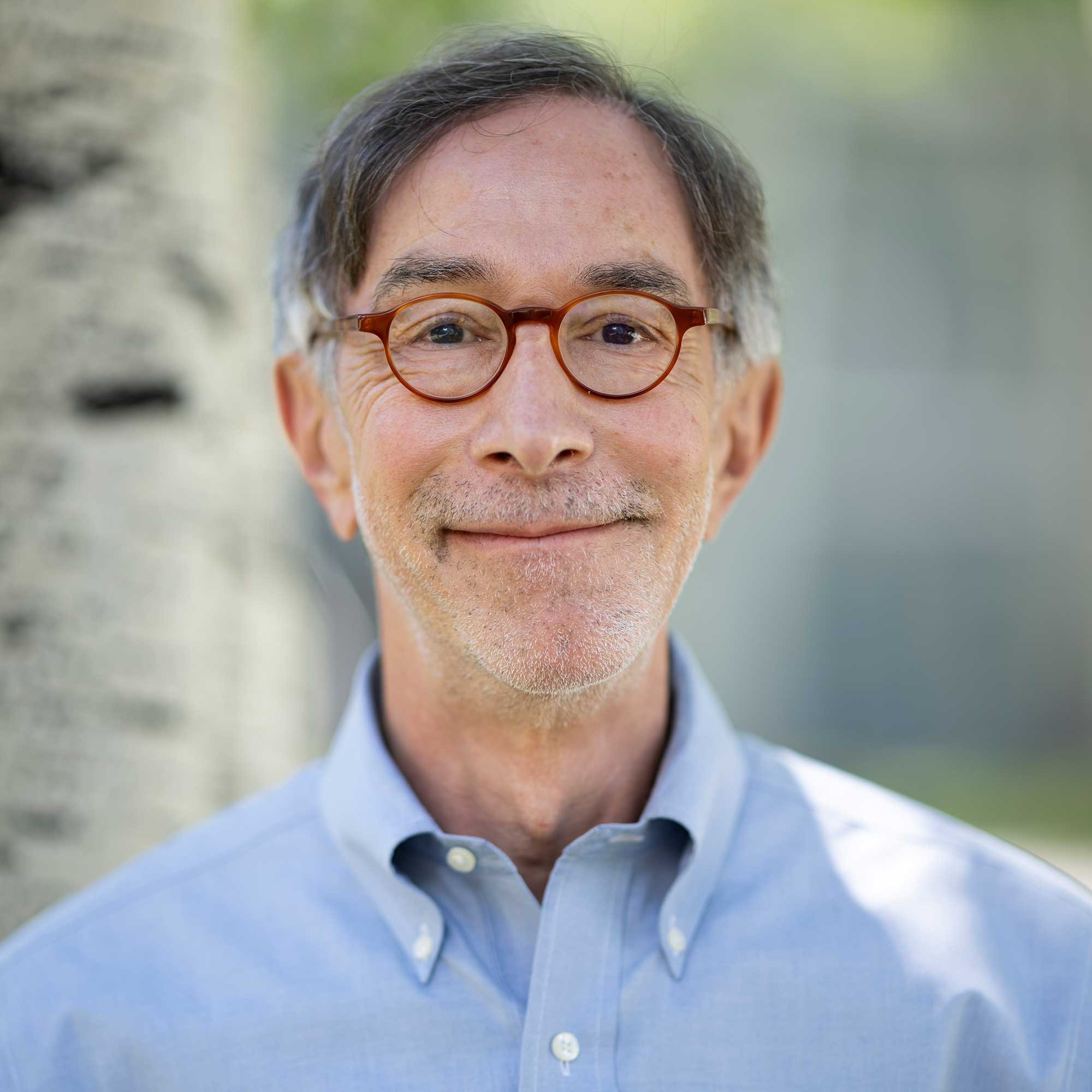
Conversations on Food Justice
Conversations on Food Justice is a collaboration between Food & Society at the Aspen Institute and Share Our Strength. This speaking series examines the roots and evolution of the food movement and how it intersects with race and class, as well as health, educational, and environmental inequities. Conversations feature a multitude of diverse voices to discuss the consequences of unequal food access, and how the food justice movement can be a catalyst for equity. Live, one-hour discussions are hosted virtually and will take place over the next twelve-months. Registration is free and open to the public.

Share Our Strength is ending hunger and poverty – in the United States and abroad. Through proven, effective campaigns like No Kid Hungry and Cooking Matters, we connect people who care to ideas that work.
our videos
Conversations on Food Justice: Realizing Rural Food Justice
In this conversation, we will explore parallels between the past and today’s current struggle for food and economic justice, and dive into how community organizing, policy, advocacy and cross-sector collaboration play a pivotal role in addressing the root causes of rural hunger and food insecurity.
Sustaining Resilience: Food Justice in the Aftermath of a Disaster
Disasters test the resilience of communities and can have far-reaching effects on access to food—disrupting supply chains, damaging infrastructure, contributing to displacement, and threatening economic security. While much attention is paid in the immediate aftermath of a disaster, the road to recovery is long—particularly for communities already facing social, economic, and political barriers to equity.
Food Insecurity on College Campuses
As college enrollment among low-income and first-generation (nearly 1 in 3 undergraduates) students grow, many students are finding that they aren’t getting the holistic supports they need and are struggling with issues that go far beyond academic achievement. The skyrocketing cost of a college education, coupled with inflation and insufficient student aid packages that often exclude funds for living expenses—are contributing to a rampant hunger crisis on campuses.
Art and Food Justice
Art and food nourish our bodies and souls, and have the power to transform the way we think about the world around us. For decades, artists have used their work to inform and inspire movements for food justice and equity—using their mediums to provoke conversation and the exchange of ideas, decrease stigma, and foster a deeper understanding of our relationship to food.
Race and Water Equity
Water is essential to our health and survival—both for our nourishment, and for our food to grow—and the ways we access water have the power to shape our communities. While water was once viewed as a public good, generations of segregation and racial discrimination, pollution, and disinvestment in water infrastructure projects have contributed to a water access and affordability crisis that is drawn along racial lines.

